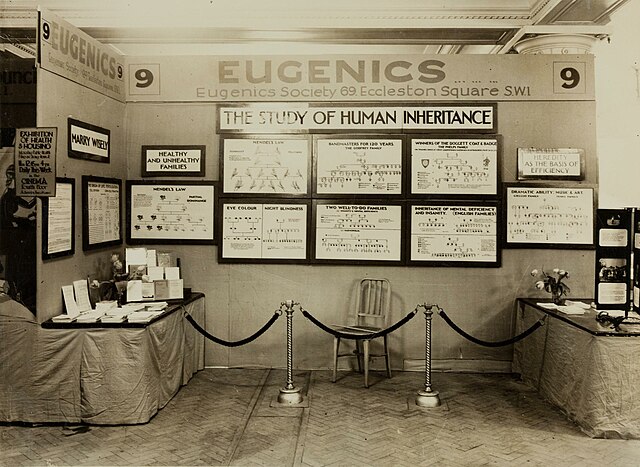Marie Charlotte Carmichael Stopes was a British author, palaeobotanist and campaigner for eugenics and women's rights. She made significant contributions to plant paleontology and coal classification, and was the first female academic on the faculty of the University of Manchester. With her second husband, Humphrey Verdon Roe, Stopes founded the first birth control clinic in Britain. Stopes edited the newsletter Birth Control News, which gave explicit practical advice. Her sex manual Married Love (1918) was controversial and influential, and brought the subject of birth control into wide public discourse. Stopes publicly opposed abortion, arguing that the prevention of conception was all that was needed, though her actions in private were at odds with her public pronouncements.
Stopes in 1918
Stopes in her laboratory, 1904
Cover of Marie Stopes's bestseller, Married Love
A 1930 cartoon by David Low showing in the Irish Free State in 1931 a man arrested for having possession of Marie Stopes literature on birth control-followed by his wife and many children
Eugenics is a set of beliefs and practices that aim to improve the genetic quality of a human population. Historically, eugenicists have attempted to alter human gene pools by excluding people and groups judged to be inferior or promoting those judged to be superior. In recent years, the term has seen a revival in bioethical discussions on the usage of new technologies such as CRISPR and genetic screening, with heated debate around whether these technologies should be considered eugenics or not.
A 1930s exhibit by the Eugenics Society. Two of the signs read "Healthy and Unhealthy Families" and "Heredity as the Basis of Efficiency".
Francis Galton, an early eugenicist, coined the term itself.[need quotation to verify]
G. K. Chesterton, an opponent of eugenics, photographed by Ernest Herbert Mills in 1909
Schloss Hartheim, a former center for Nazi Germany's Aktion T4 campaign






![Francis Galton, an early eugenicist, coined the term itself.[need quotation to verify]](https://upload.wikimedia.org/wikipedia/commons/thumb/e/ec/Francis_Galton_1850s.jpg/441px-Francis_Galton_1850s.jpg)

